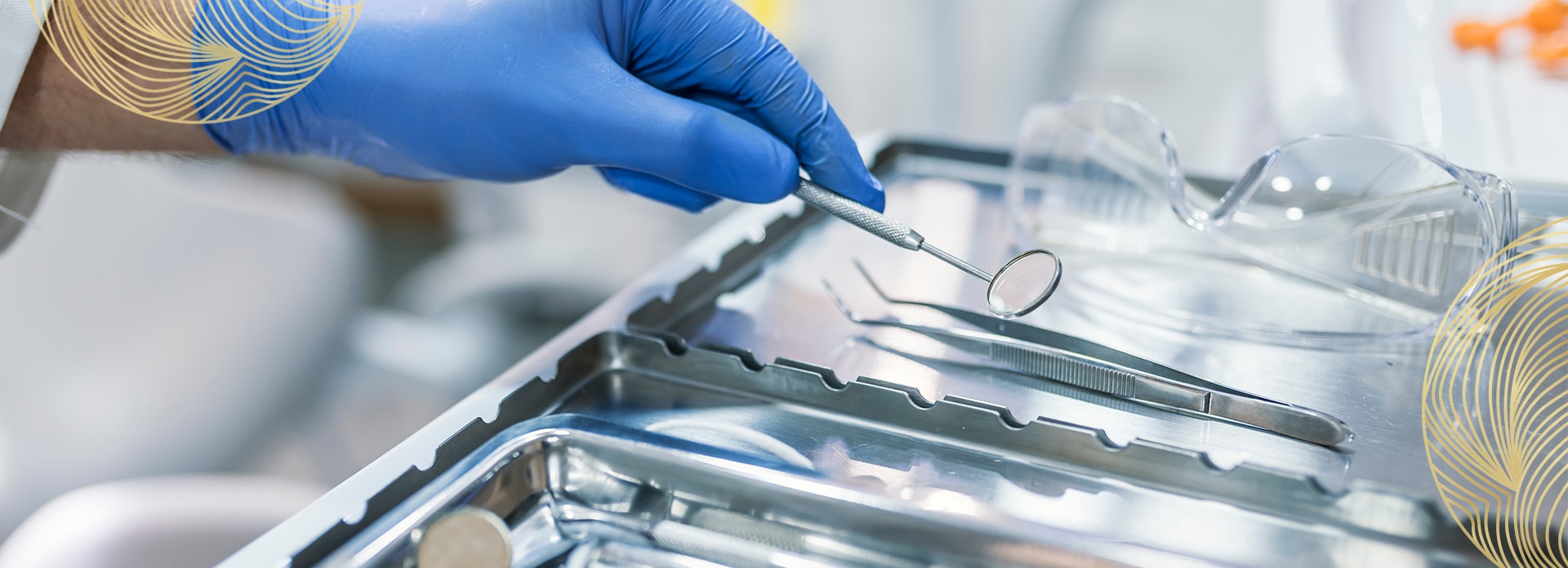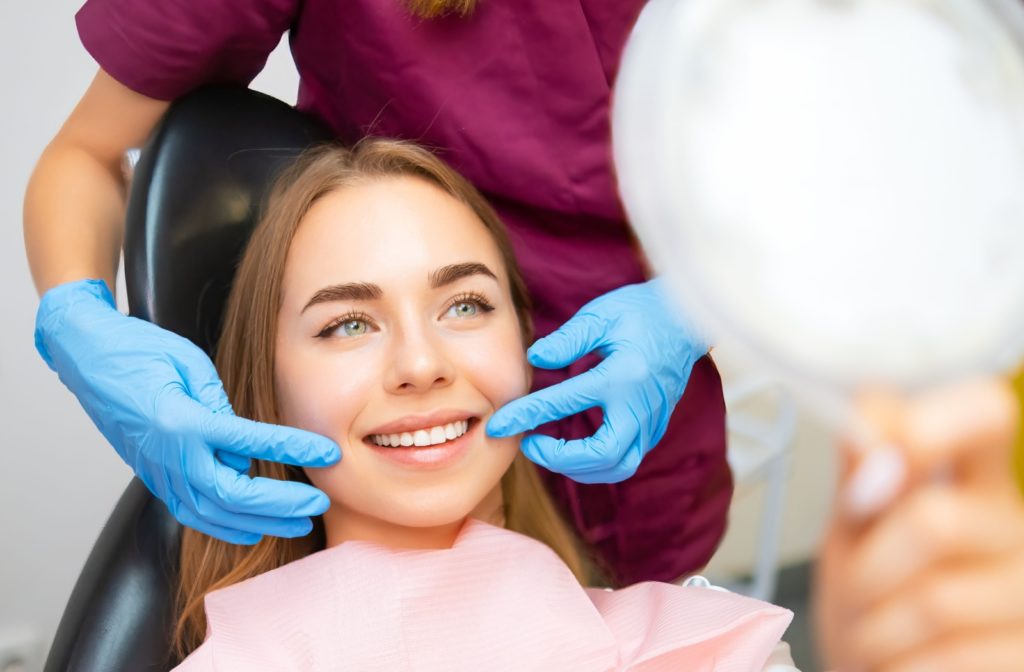Dental health is more than maintaining a bright smile—it is about ensuring the longevity and functionality of teeth throughout life. One critical yet often overlooked aspect of dental health is dental attrition or the wearing down of a tooth’s surface, thus losing tooth volume.
Understanding dental attrition, its causes, signs, and prevention can help you maintain a healthier smile for years to come and reduce the need for more invasive restorative treatments in the future.
What Is Dental Attrition?
Dental attrition refers to the gradual wearing down of the tooth surface due to tooth-to-tooth contact. This natural process occurs over time due to normal chewing and grinding activities.
While a certain degree of attrition is expected as we age, excessive wear can lead to significant dental problems. Understanding dental attrition is crucial for dental patients because early detection and intervention can prevent more severe oral health issues.
Causes of Dental Attrition
Bruxism
Bruxism refers to the involuntary grinding or clenching of teeth, often during sleep. This condition exerts excessive pressure on the teeth, accelerating wear and tear.
The Bite
Sometimes when the jaws and teeth do not align properly, it can cause excessive wear of the teeth. Misaligned teeth are more prone to chipping and cracking due to uneven force distribution.
Poor Oral Hygiene
Neglecting proper oral care can lead to plaque buildup and gum disease, which can weaken the teeth and make them more susceptible to attrition. Maintaining good oral hygiene is essential to minimizing the risk of accelerated tooth wear.
Diet
Your diet plays a significant role in your oral health. Consuming acidic foods and beverages like citrus fruits, sodas, and wine can erode tooth enamel, making your teeth more prone to attrition. Additionally, abrasive foods such as nuts and seeds can contribute to the physical wearing away of tooth surfaces.
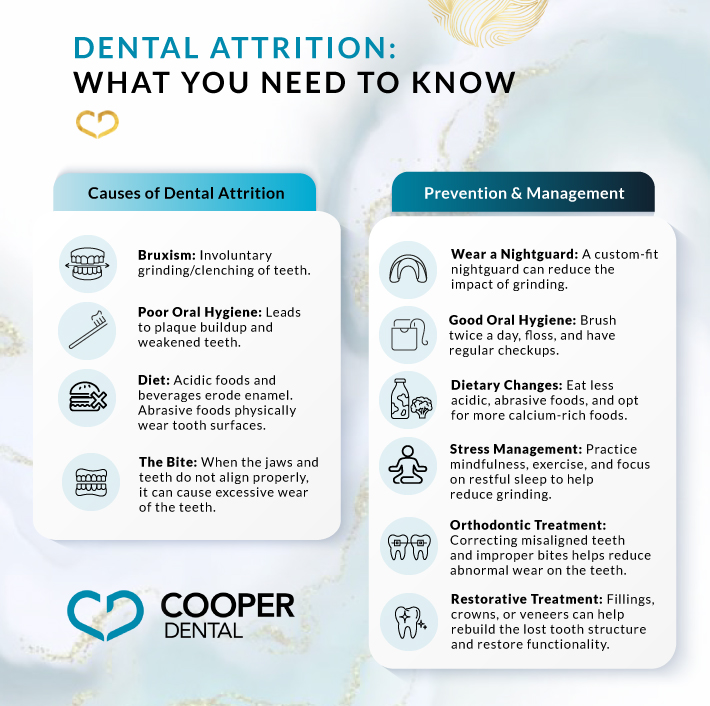
Signs & Symptoms
Detecting dental attrition early can help prevent more severe complications. Below are some common signs and symptoms to keep an eye out for.
Tooth Sensitivity
One of the earliest signs of dental attrition is tooth sensitivity. As the enamel wears down, the underlying dentin becomes exposed, leading to increased sensitivity to hot, cold, or sweet stimuli.
Uneven Wear on Teeth
Another visible symptom of dental attrition is uneven wear on your teeth. You may notice they look flattened or have irregular edges or chipping, which is a clear sign of excessive wear.
Changes in Bite
Dental attrition can also lead to changes in your bite. If your teeth no longer fit together as they used to, it could be due to the altered shape of worn teeth.
Complications of Untreated Attrition
Ignoring dental attrition can lead to complications, some of which may require restorative dental work.
Dental Fractures
Excessive wear weakens the structure of the teeth, making them more susceptible to fractures. These fractures can be painful and may require treatments such as crowns or extractions.
Teeth Thinning
The edges of the front teeth may start to appear translucent. This greyness is a result of the teeth thinning from the inside aspect.
Need for Restorative Dental Work
Over time, untreated dental attrition can necessitate restorative procedures such as fillings, crowns, or veneers to rebuild the lost tooth structure and restore functionality.
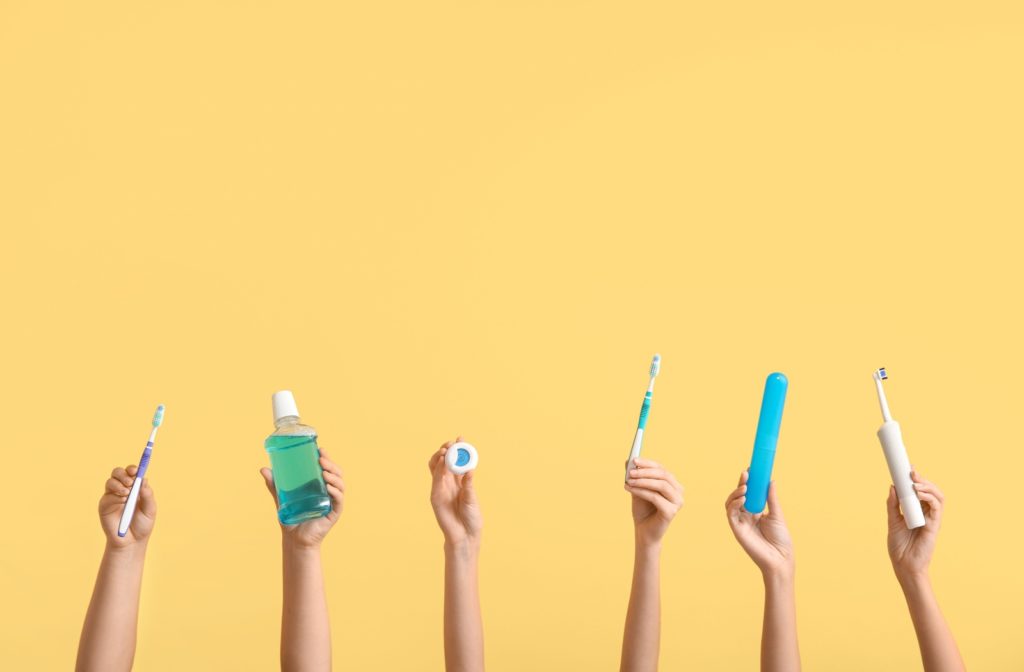
How to Support Your Smile
While dental attrition can cause wear on teeth, you can take proactive steps to preserve your smile and support its longevity. Preventing and managing dental attrition involves a combination of good oral hygiene practices, lifestyle changes, and professional interventions.
Wear a Nightguard
Those with bruxism can wear a nightguard to help reduce the impact of grinding and clenching. A custom-fitted nightguard acts as a protective barrier, preventing excessive wear on the teeth.
Maintain Good Oral Hygiene
Maintaining a consistent and thorough oral hygiene routine at home can help keep teeth healthy and less susceptible to attrition. Brush twice a day, floss every day, and have regular dental checkups.
Dietary Changes
Modifying your diet to minimize the intake of acidic and abrasive foods can help preserve your enamel and reduce the risk of dental attrition. Incorporating more calcium-rich foods can strengthen your teeth and enhance their resilience.
Stress Management
Bruxism is often linked to stress, so adopting stress management techniques such as mindfulness and exercise and ensuring you get adequate sleep can help reduce teeth grinding and clenching.
Can Tooth Wear Be Fixed?
While methods for managing dental attrition can vary depending on the severity and underlying causes, effective solutions are available to help address this condition.
- Orthodontic solutions: Minor orthodontic alignment issues causing unnatural angles between teeth can be corrected to alleviate the effects of dental attrition.
- Dental fillings or crowns: In severe cases of dental attrition, where significant damage has occurred, dental crowns can be used to restore the tooth.
- Night Guard: A night guard can be helpful, but it is more like a bandaid. Since the damage is already done, it helps to keep the teeth as they are.
The photo below is an example of severe bruxism treated at Cooper Dental. This treatment included Invisalign orthodontic treatment followed by 28 crowns.
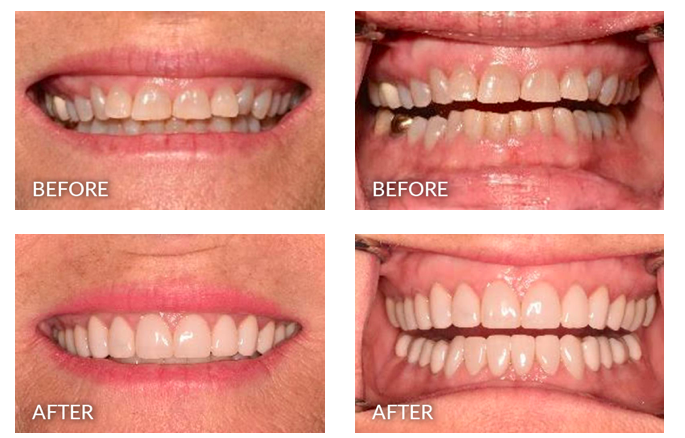
When to Seek Professional Help
Recognizing when to seek professional dental care for dental attrition is essential. If you experience persistent tooth sensitivity, visible wear, or discomfort, it is time to consult a dental professional. Early intervention can prevent further damage and save you from more extensive treatments in the future.
At Cooper Dental, we are committed to helping you maintain optimal dental health. If you have noticed any signs of dental attrition or have concerns about your dental health, do not wait. Schedule an appointment today, and let us help you preserve your beautiful smile.

